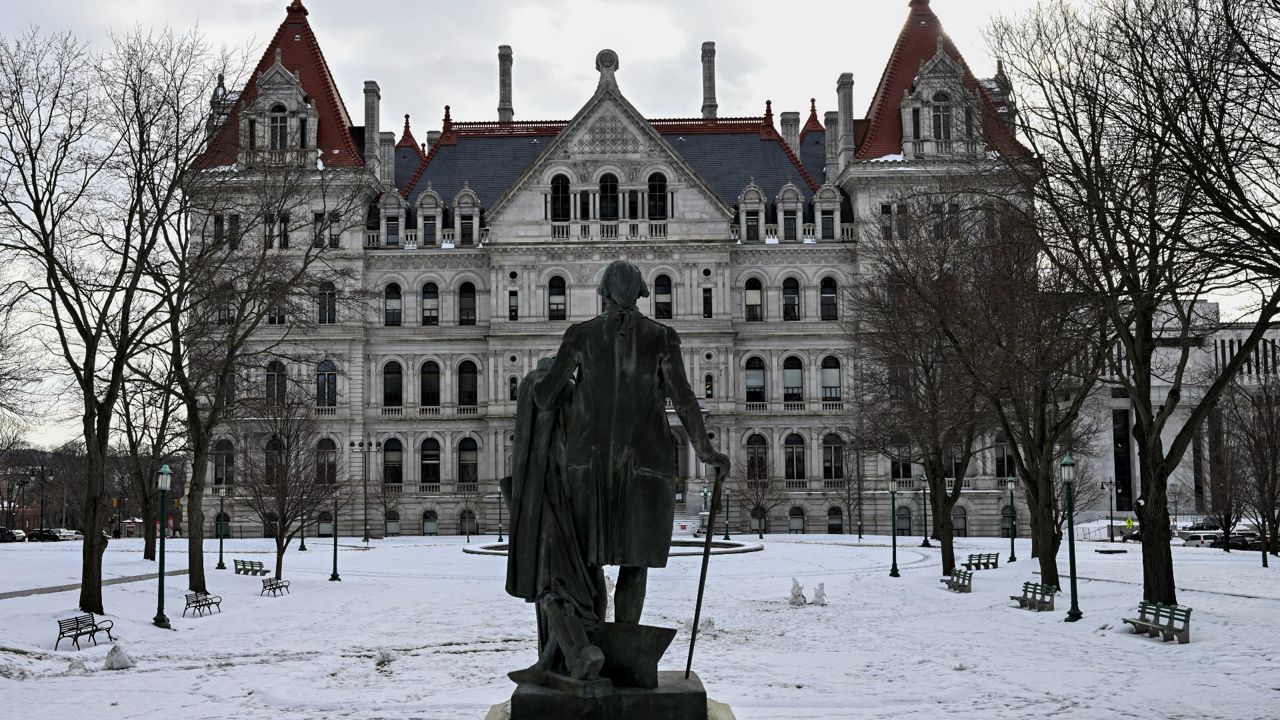Gov. Kathy Hochul's proposed $216 billion spending proposal for the coming year includes measures meant to ease the burden of property taxes, increases school and education aid and sets up a potential fight over whether to provide support for renters and landlords who are struggling during the COVID-19 pandemic.
Here are five key takeaways from Hochul's budget plan:
Property tax relief
Hochul's budget includes a homeowner tax credit for those with qualifying incomes. Homeowners who earn less than $75,000, the average credit will amount to about $1,050. If given final approval, the tax credit would be coming to taxpayers in the fall — just as a gubernatorial election is getting underway.
Vacation rentals could be taxed
The budget plan includes a proposal that is meant to "create a level playing field" for hotels, motels and bed and breakfast operations by subjecting all vacation rentals to state and local sales tax, as well as the daily New York City Convention Center hotel fee of $1.50 per unit. This is a measure that appears to address the growing use of short-term rentals booked online through sites like Verbo or Airbnb — companies the powerful labor union Hotel Trades Council has sought to regulate further.
Help for local governments
Hochul began her career in local government. And her budget proposal would resolve some power back to municipalities in New York. For instance, one proposal would allow cities and county governments to permanently keep their sales tax rates at the either current level or increase it up to 4%. This sounds wonky. But if approved, it would save a lot of uncertainty for local governments who seek to extend their local sales tax every several years from Albany, putting their budget pictures in doubt if agreements can't be reached at the end of the year.
At the same time, the budget would change how direct aid to local governments is allocated through local sales tax collections in another effort to boost certainty in budget making.
Fate of rental assistance remains up in the air
Hochul's budget does not include funding for the state's Emergency Rental Assistance Program, which had been largely funded with federal dollars. And Hochul is not backing additional money for a fund that benefitted workers like undocumented New Yorkers who did not qualify for federal pandemic aid over the last two years.
This is money that could wind up being part of a broader budget negotiation in the coming weeks with the state Legislature. Progressive groups and state lawmakers are almost certain to seek inclusion of his aid in a final budget agreement.
People who leave
The governor in her first State of the State address made note of the people who have moved out of the state. It's not an academic concern, especially when rich people leave. The state relies on a small number of very wealthy filers to bolster its revenue from the personal income tax.
And Budget Director Robert Mujica made note of population loss as a key risk area for the budget going forward. But Mujica in a briefing with reporters on Tuesday afternoon struck a more optimsitic note, pointing to people leaving the city actually moving within the state to Long Island and the Hudson Valley.
The hope is that with the pandemic on the potential ebb, those people will return to New York City.
Bonus: Pandemic recovery initiatives
The plan sets aside $2 billion for "pandemic recovery initiatives." What those are, Hochul did not say in her address, nor does her budget briefing book go into detail other than to say she will be working with the Legislature to iron out the specifics.
In other words, the money is a potential grab bag of choices for lawmakers who may be eager to pour money into help for undocumented people or those struggling to pay rents.


